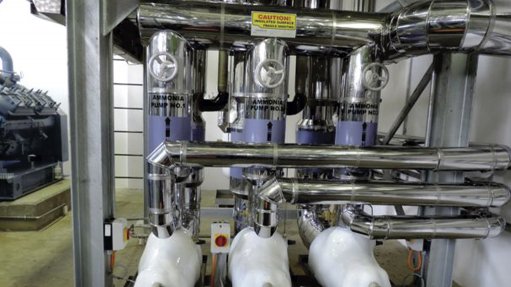
HOW TO... The association has released a new installation manual which will be used by training providers form this month
Last month, South African Refrigeration and Air Conditioning Contractors Association (Saracca) released its updated training manual, which will be implemented, from this month onwards, by heating, ventilation, air-conditioning and refrigeration (HVAC-R) training providers throughout South Africa.
Saracca director Barney Richardson tells Engineering News that the new manual is part of the association’s continuous efforts to maintain skills levels in the HVAC-R sector.
“The skills level of installers directly impacts the quality and compliance of air conditioning, refrigeration units, cold rooms/freezers and large cold stores being installed in South Africa,” he says.
He adds that a lack of skills especially has a negative impact on the ability to install a system that adheres to the correct installation requirements and standards certifications.
“Additionally, there is always the risk that the noncompliant person is endangering the health and safety of not only themselves but the client as well.”
Further, the sector is being driven by small “fly-by-night” businesses, causing the industry to enter a ‘price war’ between compliant and noncompliant companies, which ultimately ends up costing the customer.
A price war can be seen as a strategic move by local companies to ensure survival in a tough economy.
Essentially, if practised correctly and in line with the law, a price war could offer an ideal opportunity to realign prices.
However, when the price war comes at the cost of compliance, the customer will bear the brunt and become the ultimate loser.
He points out that Saracca currently has about 110 registered members, which it guides in best practice operations and encourages the continued implementation of compliance to the Pressure Equipment Regulation and South African Bureau of Standards regulations.
Richardson adds that the association continuously communicates with its members and other industry participants to promote compliance, adding that the association has, through numerous media platforms, engaged relevant parties in the sector to reiterate the importance of compliance.
“Unfortunately, the Covid-19 pandemic has stopped us from attending live events and hosting talks, but we do still engage, where and when possible, with our partners and members.”
He points out that the demand for smaller cooling options such as residential air-conditioning has shown a small increase, while the larger refrigeration and cold room sector seems to be more stagnant.
Getting Hotter
Richardson adds that owing to an increased awareness of the environment, the development of new processes and the use of natural refrigerant gases – which requires even higher skills – has seen an uptick in the South African market.
“The use of hydrocarbon refrigerants, although substantially greener than any other commonly used refrigerant gas, necessitates even more highly skilled technicians, as they are much more flammable than other refrigerant gases.”
Richardson suggests that some large retail houses have already fully implemented a ‘greener’ natural refrigerant gas, such as ammonia and carbon dioxide in the refrigeration process, and more seem to be following suit.